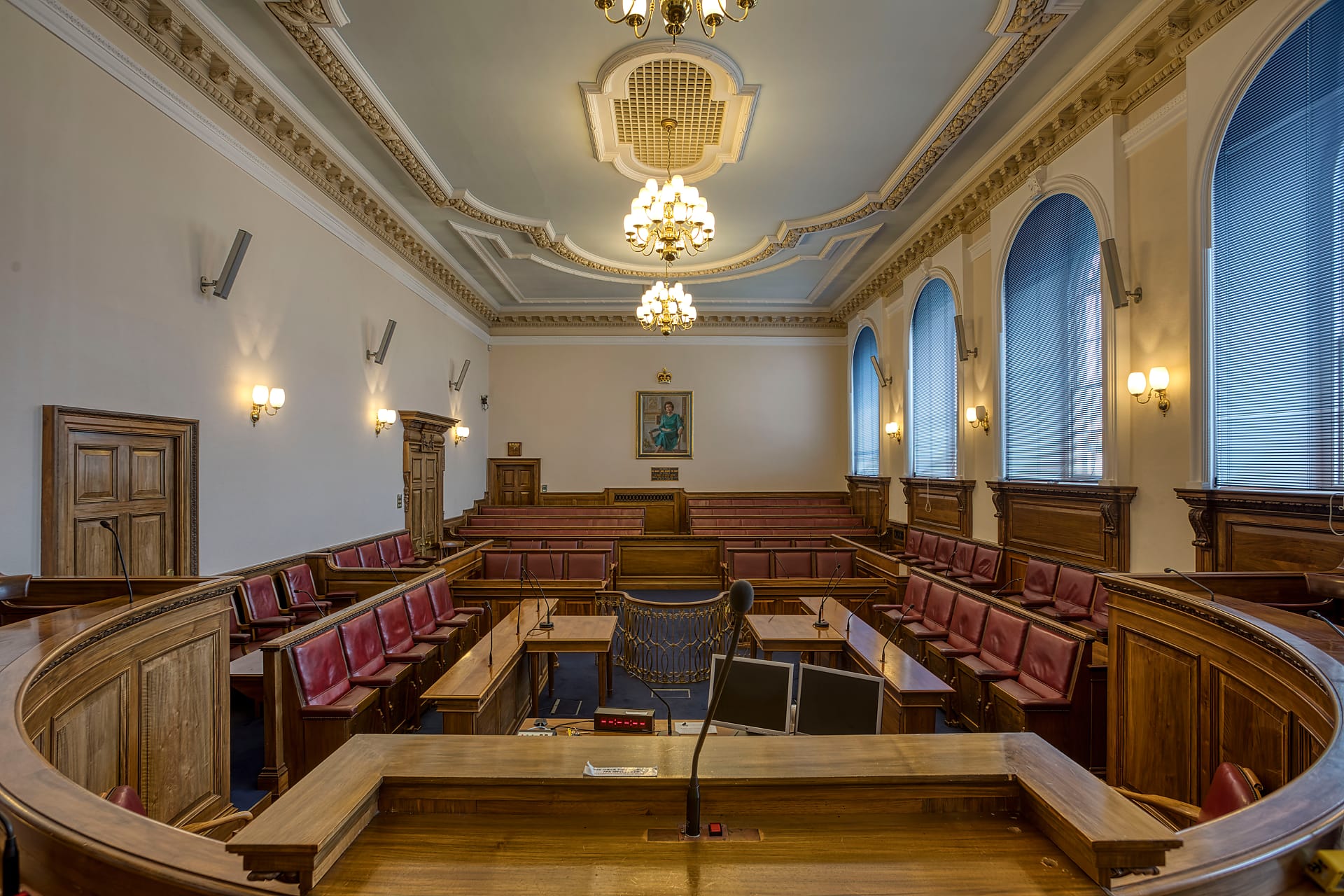States of Guernsey Meeting: Debate, Decisions, and Updates
The most recent meeting of the States of Deliberation, Guernsey’s parliament, provided a wide-ranging debate on policy, finance, and community issues that affect the island’s future. The assembly of elected deputies discussed everything from fiscal reforms and housing pressures to climate commitments and healthcare planning.
As always, the meeting underscored both the strengths and challenges of Guernsey’s unique system of government: consensus-based, locally accountable, and often fiercely debated.
This article provides a detailed overview of the debates, the decisions taken, and the implications for residents and businesses across the island.
The Role of the States of Guernsey
Before diving into the meeting itself, it is worth reminding readers of the structure of Guernsey’s political system.
No political parties: Guernsey operates a consensus government, with deputies elected as independents rather than along party lines.
Policy & Resources Committee: Functions as the senior committee, handling budgets and overall strategy.
Other Committees: Such as Health & Social Care, Environment & Infrastructure, and Economic Development, bring forward proposals for debate and implementation.
States of Deliberation: The full assembly of deputies, who meet to debate and vote on propositions.
This model means debates are often long, detailed, and unpredictable—reflecting a range of individual perspectives rather than rigid party discipline.
Key Agenda Items
The latest meeting touched on several major issues.
1. Fiscal Reform and Tax Policy
Rising costs for healthcare, pensions, and public services have raised concerns about whether the current tax system can meet future demands.
Proposals discussed: Options included adjustments to income tax thresholds, exploring a goods and services tax (GST), and restructuring property taxes.
Arguments for reform: Deputies warned that without change, budget deficits could erode reserves and threaten vital services.
Arguments against GST: Several deputies and members of the public oppose GST, arguing it would disproportionately affect lower-income households and damage the island’s competitiveness.
No final decision was reached, but the debate made clear that fiscal reform will dominate the political agenda in coming years.
2. Housing and Population Pressures
Housing affordability remains one of Guernsey’s most pressing challenges.
Shortages: Limited housing stock and rising property prices have made it difficult for young islanders and key workers to secure affordable accommodation.
Policy responses: Deputies considered measures to release more land for development, incentivise affordable housing projects, and improve rental sector regulation.
Population link: Several deputies tied the issue to population management, warning that inward migration for key skills must be balanced with housing availability.
While consensus emerged on the urgency of the issue, divisions remain on how bold government intervention should be.
3. Healthcare Planning
The Health & Social Care Committee presented updates on plans to modernise healthcare delivery.
Recruitment: Challenges in attracting doctors, nurses, and carers were acknowledged, with calls for more flexible visa arrangements.
Funding concerns: Deputies debated whether current funding levels could sustain both capital projects and rising operational costs.
Healthcare reform was broadly supported, but deputies pressed for realistic timetables and transparency on costs.
4. Climate and Environment
Guernsey’s climate commitments also featured prominently.
Carbon reduction goals: Deputies debated how the island can meet its emission reduction targets while balancing economic competitiveness.
Transport: Proposals to expand electric vehicle infrastructure and encourage active travel were raised.
Marine environment: Concerns about marine conservation zones and the impact on fishing communities were voiced.
The debate reflected Guernsey’s dilemma: as a small jurisdiction, its direct emissions are modest, but it faces pressure to demonstrate leadership and protect its environment.
5. Education Policy
Education remains a recurring flashpoint.
School model: Deputies revisited long-standing disputes over secondary school structures, including whether a two-school or three-school model best serves the island.
Funding: Questions over capital investment in facilities dominated the discussion.
Teacher recruitment: As in healthcare, difficulties attracting and retaining skilled staff were highlighted.
The debate ended without full resolution, but deputies agreed to revisit detailed proposals later in the year.
Major Decisions Taken
Despite lengthy debates, the meeting did produce several concrete outcomes.
Budget adjustments: Deputies approved interim funding allocations to support healthcare recruitment initiatives and education planning.
Climate strategy: A motion was passed to strengthen Guernsey’s carbon reduction roadmap, with annual progress reporting now required.
Affordable housing fund: Agreement was reached to establish a ring-fenced fund to support affordable housing projects, financed through a modest levy on high-value property sales.
Digital transformation: Deputies backed investment in digital infrastructure for government services, aimed at improving efficiency and access for residents.
These decisions signal a willingness to address long-term challenges, albeit incrementally.
The Nature of Debate: Consensus vs Division
As always in the States of Deliberation, debate was spirited.
Consensus moments: Deputies showed unity on issues such as supporting healthcare staff and improving digital services.
Divisions: Sharp disagreements emerged over tax reform, education structures, and housing strategy.
Cultural tone: The meeting illustrated Guernsey’s political culture—robust argument conducted without party lines, but often slowed by lack of clear majority positions.
For many observers, this reflects both the strength and the frustration of Guernsey’s democratic model.
Public Reactions
Public responses to the meeting have been mixed, reflecting both appreciation for open debate and concern about slow progress.
Business community: Business leaders welcomed clarity on digital investment but urged faster decisions on tax reform to maintain competitiveness.
Young islanders: Housing pressures remain a top concern, with many expressing frustration at delays in delivering tangible results.
Environmental groups: Campaigners praised the strengthened climate strategy but warned that action must follow words.
Healthcare workers: Staff welcomed commitments to recruitment support but remain skeptical about whether promises will translate into real improvements.
Challenges Ahead
The meeting underscored several long-term challenges:
Sustainable Finances – Finding a tax system that secures revenue without undermining fairness or competitiveness.
Housing Affordability – Delivering real solutions to housing shortages before they erode community cohesion.
Public Service Recruitment – Attracting skilled professionals in health, education, and other services.
Balancing Growth and Sustainability – Promoting economic resilience while meeting climate commitments.
Consensus Decision-Making – Maintaining effective governance in the absence of party structures.
How the States addresses these challenges will shape Guernsey’s trajectory over the next decade.
Historical Context: Guernsey’s Tradition of Self-Government
The debates also highlight Guernsey’s long tradition of self-governance. The island has managed its own affairs for centuries, developing institutions that are deeply rooted in local identity.
Independence of approach: Guernsey often crafts policies tailored to its scale and culture, rather than simply adopting UK models.
Resilience: The States has steered the island through crises, from wartime occupation to modern economic shifts.
Modern pressures: However, global challenges—from tax transparency to climate change—are testing the adaptability of this tradition.
This context underscores why States meetings attract such close public attention: they are central to Guernsey’s sense of community and autonomy.
Looking Forward: Next Steps
Following the meeting, committees have been tasked with refining proposals and reporting back. Key areas to watch include:
Fiscal review outcomes later this year, which may bring fresh proposals for tax reform.
Housing delivery plans, including potential land release and partnership models with developers.
Healthcare project updates, particularly timelines for hospital upgrades.
Education restructuring proposals, likely to resurface in future sessions.
Residents can expect further robust debates, with decisions that will affect daily life across the island.
Conclusion: A Meeting of Debate and Direction
The latest States of Guernsey meeting reflected the complexities of governing a small but dynamic island community.
While some critics lament the slow pace of progress, others value the openness and independence of Guernsey’s system. The meeting produced important decisions on housing, climate, and digital infrastructure, while leaving thornier issues like tax reform and education to future debates.
In the end, the meeting demonstrated that Guernsey’s political model—rooted in consensus, independence, and detailed deliberation—remains very much alive. The challenge now lies in turning debate into decisive action, ensuring that the island is prepared for the economic, social, and environmental challenges of the decades ahead.



